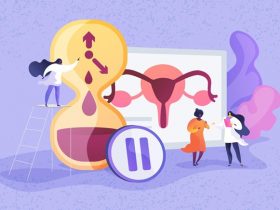Primary ovarian insufficiency is a disorder that occurs when the ovaries (the organ that produces eggs in women) stop functioning at an inappropriate time. If proper treatment is given quickly, pregnancy can still occur in women. It is a rare condition where the ovaries stop working before 40 years old. Your ovaries can no longer make the expected levels of the hormone estrogen or produce sufficient eggs. The state could lead to infertility. It would help to know that this disorder is referred to as “insufficiency” instead of “failure” because the ovaries can still work occasionally to release eggs and, in some cases, lead to pregnancy.
In some cases, primary ovarian insufficiency can be misdiagnosed as premature menopause, but these disorders aren’t the same. You may experience irregular or intermittent periods for years and even get pregnant if you have primary ovarian insufficiency. However, it is impossible to get pregnant if you have premature menopause. To prevent the worsening of this disorder or other health conditions like osteoporosis, your doctor will recommend ways to boost the estrogen level.
Symptoms

Studies show that the signs and symptoms of primary ovarian insufficiency are also seen in menopause or estrogen deficiency. These symptoms are:
- Irregular or missed periods. This symptom may occur for years or start after pregnancy or after you stop using birth control medications.
- Hard to get pregnant
- Hot flashes
- Sweating in the night
- Dry vagina [1]
- Dry eyes [2]
- Irritability or inability to concentrate
- Reduced urge to have sex













